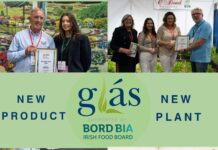The agricultural sector continues to recover from the market volatility experienced in 2009 which had a severe impact on farmers’ incomes. Speaking at the launch of the Teagasc Annual Report 2009 in Dublin today, Teagasc Director, Professor Gerry Boyle said:” Last year Teagasc were assisting farmers with ‘Financial Health Checks’ as the incomes of dairy and tillage farmers suffered due to volatility in international markets.
This year there has been a recovery in market prices for both milk and grain, but the downturn in the wider economy is now having a bigger impact on the incomes of farm households through the loss of off-farm employment, and reduced earnings off-farm.”
“Opportunities to expand agricultural output have been identified in the Food Harvest 2020 report and Teagasc is committed to supporting the agriculture and food industry to deliver those ambitious targets. Challenges also lie ahead, particularly in the shape of the future Common Agricultural Policy for Europe and Teagasc will continue to provide critical analysis of any proposals that emerge, to assist in achieving the best policy outcome for Ireland,” he said.
Also speaking at the launch of the annual report, Teagasc Director of Knowledge Transfer (education and advisory) Dr Tom Kelly said:” As we move towards the ending of milk quotas, exciting opportunities are emerging for young Irish farmers to expand and enter milk production. This year we have seen an increase in the number of farmers participating in dairy discussion groups. This is providing the ideal channel through which to transfer knowledge and to encourage the uptake of the best low-cost technologies on farms, which will help to insulate against market and income volatility in the future.”
Speaking about the changes taking place in Teagasc, Professor Gerry Boyle said;” significant changes have already taken place, and that process of change will continue over the next few years. The Teagasc change programme agreed over 18 months ago sets out the priorities for the organisation for the future and is being implemented. Difficult decisions have been taken to streamline the organisation, to close forty offices, reduce the land area used for research and exit some programmes. This will better position the organisation to provide the research, education and advice for the farmers, so that the opportunities that exist can be grasped in the future.
Annual Report 2009
Teagasc education courses continue to attract large numbers of students into agriculture. In 2009, new enrolees amounted to 1,577 bringing the total number of students participating in Teagasc run courses to 3,222. In addition 10,800 adult farmers completed short training courses. The biggest categories were REPS training courses and health and safety training courses. New courses offerings continue to be developed with other education institutes. A new level 8 Horticultural Degree Programme is being offered between the Teagasc Horticultural College at the Botanic Gardens and Dublin City University. A new dairy degree programme has been developed jointly with UCD.
The advisory service provided a service to over 40,000 farmers. In 2009 nearly half of the applications for single farm payment processed by Teagasc on behalf of farmers were done online. The organisation experienced strong demand for its services in Business and Technology, Environment and Good Farm Practice, and Rural Development. Farmer participation in discussion groups has grown, and this is proving to be an extremely effective model for transferring technology onto farms. The BETTER farm programme which was already established in beef and sheep has been extended to dairy, liquid milk and tillage.
Some of the research achievements highlighted in the annual report include breeding two new potato varieties at the research centre in Oak Park. The two new potato varieties called Infinity and Cristina are both red skinned, white fleshed, early maturing potato varieties. Two new varieties of perennial ryegrass were awarded recommended listing. Genesis and Solomon are two grass varieties that are ideally suited to Ireland’s grazing-based livestock systems offering exceptionally high spring and annual grazing yields. New markets were developed for existing white clover varieties, Avoca and Chieftain in France and New Zealand.







